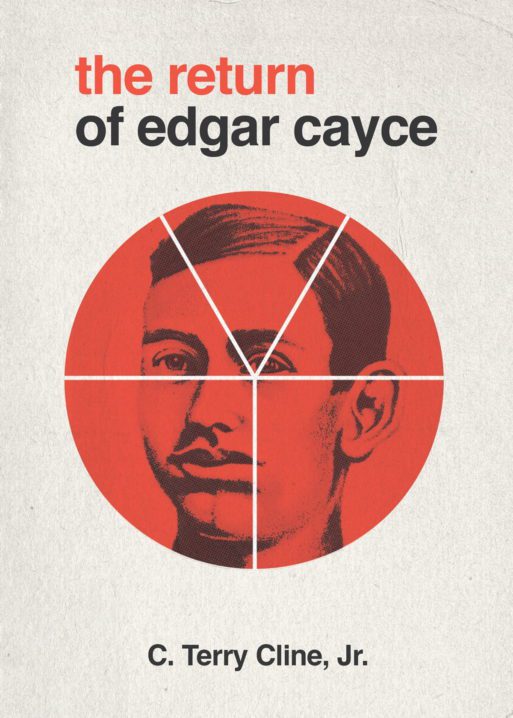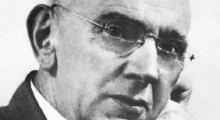 Suspense novelist C. Terry Cline, Jr. has been an Edgar Cayce fan for some time. Since the sixties, more accurately. For those unfamiliar with Cayce, as this reviewer was until reading this book, the famed psychic, mystic and seer was born in 1877 and died on January 3rd, 1945, during which time he performed at least 15,000 “readings.” These were originally on topics as diverse as world politics and horse racing, but eventually settled for the more focused goals of helping the sick and elderly. Woodrow Wilson, George Gershwin, Irving Berlin, and Thomas Edison at one point counted themselves his clients. He garnered legions of fans, and in 1929 founded a hospital on Virginia Beach devoted to his abilities. Some believed him to be a modern day prophet. At the same time, many remained skeptical, and went to great lengths to prove him a hoax — none of which efforts were definitively successful. On January 3rd, 1945, Cayce died. The opening page of this book, The Return of Edgar Cayce, begins thusly: “Before the body died in 1945, it said we’d be back in 2050. That alone should have told you the world would not end December 21, 2012.” He is referring, of course, to the termination of the Mayan Calendar, which, as Cayce later explains, does not in fact foretell the apocalypse, but is rather the result of the stone cutter’s carpal tunnel syndrome. Sometimes, after all, the simplest explanation really is the most likely.
Suspense novelist C. Terry Cline, Jr. has been an Edgar Cayce fan for some time. Since the sixties, more accurately. For those unfamiliar with Cayce, as this reviewer was until reading this book, the famed psychic, mystic and seer was born in 1877 and died on January 3rd, 1945, during which time he performed at least 15,000 “readings.” These were originally on topics as diverse as world politics and horse racing, but eventually settled for the more focused goals of helping the sick and elderly. Woodrow Wilson, George Gershwin, Irving Berlin, and Thomas Edison at one point counted themselves his clients. He garnered legions of fans, and in 1929 founded a hospital on Virginia Beach devoted to his abilities. Some believed him to be a modern day prophet. At the same time, many remained skeptical, and went to great lengths to prove him a hoax — none of which efforts were definitively successful. On January 3rd, 1945, Cayce died. The opening page of this book, The Return of Edgar Cayce, begins thusly: “Before the body died in 1945, it said we’d be back in 2050. That alone should have told you the world would not end December 21, 2012.” He is referring, of course, to the termination of the Mayan Calendar, which, as Cayce later explains, does not in fact foretell the apocalypse, but is rather the result of the stone cutter’s carpal tunnel syndrome. Sometimes, after all, the simplest explanation really is the most likely.
According to Cline, the author (and apparently, as I gathered from a radio interview, he means this absolutely seriously) the majority of words in this book are not his own. Rather, while sitting in front of his computer one day, waiting for inspiration, Cline was surprised to find another person altogether effectively writing through him. “These were not my thoughts!” Cline writes in the introduction. “I’d never heard some of the words he used. ‘Lucubration,’ for example, which means to work, write, or study laboriously, usually at night.” Cayce? Following a recent late-night plane trip, and a re-reading of the deceased psychic’s books, the man had been on Cline’s mind a lot.
All things considered, Cline takes this in stride. He starts telling his friends and acquaintances that he’s in communication with Cayce. He starts taking questions to him, and channeling the answers. Sometimes he holds dialogue with the entity (making for some of the book’s more fascinating passages). What results is a surprisingly engaging and compulsively readable little book. Cayce (or Cline) makes a wealth of predictions about the coming century, concerning political changes, America’s waning economic might, changes in universal values, and the war against disease and death, none of which sound wholly foreign to the opinions of many different (living) political and environmental academics. The more interesting aspect of the book is Cayce’s commentary on living life well, on his attaining a sort of Nirvana through death, which “sets the body free to explore a whole new plane of existence.” This can be true for all of us, whether or not we believe in any manner of god, or in life after death, he says. “It is the natural order of things to recycle,” Cayce says. “The talents of Man do not perish with the passing of his lifetime. To the next generation he bequeaths lessons through art and literature, thereby advancing society steadily.” In effect, life and death can be read as metaphors, as transition states which need not be understood as more than alternative forms of existence. There does seem some intrinsic, soothing value in the concept. When Cayce writes about how, following a person’s death, the “impressions” of that person on the still living gradually fade, and how this is to be welcomed rather than feared, a grieving person may find comfort in those words.

Famed psychic, mystic, seer, and some would say prophet. Born March 18, 1877, died January 3rd, 1945.
As a natural skeptic, I read this book mostly as a joke, and would generally be far more likely to think of The Return of Edgar Cayce as an ingenious concept for a novel rather than the faithful relation of a genuine supernatural encounter. But my opinion, apparently, is not necessarily representative of the readers’ majority. Just to peruse the customer reviews on Amazon.com is an exercise, for myself at least, in suspension of disbelief (though, just to complicate the matter further, if this were merely Cline’s work, it would be a marked departure in subject matter).
Either way, whether true or not, I took pleasure in this book. After all, writing in and of itself is something of a mystical experience, and whether it was the real Cayce, or merely Cline channeling his understanding of Cayce, in my opinion, neither should be held without value — I found myself thinking of this book as something of a pre-New Age wisdom and life guide, similar to the Tao te Tze or the works of Krishnamurti. In the process of reading, I benefited, and I learned. Perhaps, in that case, belief is beside the point.
- Read our article on Funeral Rites in the Buddhist Tradition.
- Watch our video on the Zen Hospice Project.
- Check out The Return of Edgar Cayce yourself on Amazon, or through MacAdam/Cage Publishing

 The Return of Edgar Cayce, by C. Terry Cline, Jr. (2011)
The Return of Edgar Cayce, by C. Terry Cline, Jr. (2011)


 “As Tears Go By” by Marianne Faithfull
“As Tears Go By” by Marianne Faithfull

 Funeral Favors Offer Visitors a Tangible Memento
Funeral Favors Offer Visitors a Tangible Memento















